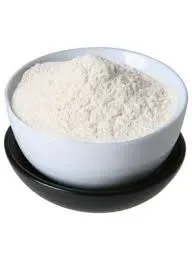
Окт . 31, 2024 03:53 Back to list
is hpmc soluble in water
Is HPMC Soluble in Water?
Hydroxypropyl Methylcellulose (HPMC) is a cellulose derivative that has garnered attention in various fields, including pharmaceuticals, food, cosmetics, and construction. One of the paramount questions asked by researchers and industry professionals alike is whether HPMC is soluble in water. Understanding its solubility is crucial for its applications in formulation and manufacturing processes.
HPMC is primarily known for its exceptional water solubility, which is one of the key reasons it is widely used in different sectors. It boasts the ability to dissolve in cold water, leading to the formation of a clear, viscous solution. This solubility stems from the hydroxyl and methoxy groups present in its molecular structure, which contribute to its affinity for water. As a result, HPMC can effectively interact with water molecules, enhancing its dissolving capacity.
Is HPMC Soluble in Water?
In pharmaceutical applications, HPMC serves multiple functions. It acts as a binder in tablet formulations, a viscosity modifier in liquid formulations, and a film-forming agent in controlled-release drug delivery systems. The solubility of HPMC in water allows for easy incorporation into various formulations, leading to improved drug release profiles and bioavailability.
is hpmc soluble in water

In the food industry, HPMC is used as a thickening agent and emulsifier. Its ability to dissolve in water and form stable gels is particularly useful in products like sauces, gravies, and bakery goods. Consumers appreciate the texture and consistency that HPMC can provide, while manufacturers value its versatility and functionality.
In the cosmetic sector, HPMC is employed in lotions, creams, and gels due to its water-soluble nature. Its capacity to retain moisture contributes to the formulation's overall stability, enhancing the product's appeal to consumers seeking effective skincare solutions.
Construction materials also benefit from HPMC's water solubility. It is commonly added to mortars, plasters, and tile adhesives, where it improves workability and adhesion while reducing water absorption. The ease of mixing HPMC with water simplifies the construction process, ensuring that workers can achieve the desired consistency and performance.
In conclusion, HPMC is indeed soluble in water, offering a wide array of benefits across various industries. Its solubility, influenced by the degree of substitution and molecular weight, plays a critical role in its function as a binder, thickener, and stabilizer. This characteristic makes HPMC an invaluable component in pharmaceutical formulations, food products, cosmetic formulations, and construction materials. As research progresses, the potential applications of HPMC are likely to expand, further solidifying its status as a versatile and essential compound in diverse fields.
-
Versatile Hpmc Uses in Different Industries
NewsJun.19,2025
-
Redispersible Powder's Role in Enhancing Durability of Construction Products
NewsJun.19,2025
-
Hydroxyethyl Cellulose Applications Driving Green Industrial Processes
NewsJun.19,2025
-
Exploring Different Redispersible Polymer Powder
NewsJun.19,2025
-
Choosing the Right Mortar Bonding Agent
NewsJun.19,2025
-
Applications and Significance of China Hpmc in Modern Industries
NewsJun.19,2025







